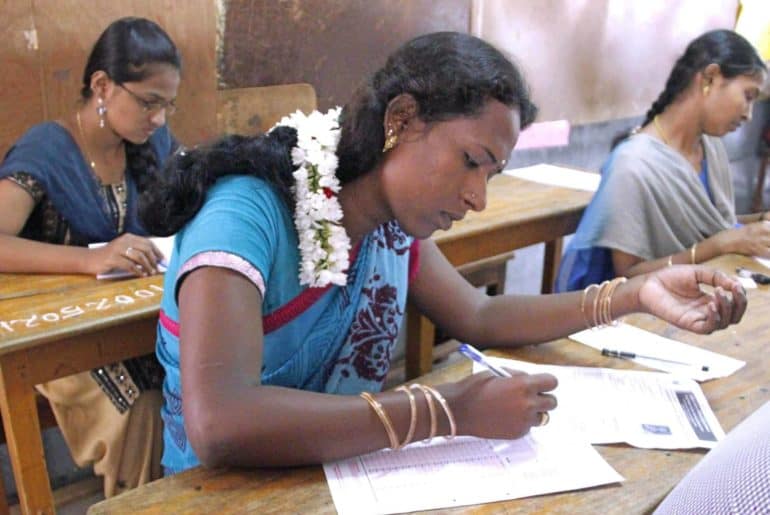The draft of the New Education Policy (NEP), 2019 is a progressive step towards liberal education in India. The guidelines laid down by the policy for the education of the transgender community is momentous in view of the discrimination faced by them for eons now. However, a pragmatic view is critical for its actualisation in a complex society like ours.
The current draft NEP has been spearheaded by former Chairman of Indian Space and Research Organisation (ISRO), and noted scientist K. Kasturirangan. It has brought about some encouraging reforms like conferring of the Right to Education to children under six and above 14, doubling of the overall financial allocation to education and strengthening the teaching profession which was much acknowledged.
One of the transcending steps taken by the NEP is to provide equitable and inclusive education to transgender students. The plight of the transgender students to pursue an education in a society where they are perceived as taboo and face harsh criticism, this move to make educational spaces inclusive was a much-needed effort.
The draft NEP mentions,
“The Policy recognises the urgent need to address matters related to the education of transgender children and initiating appropriate measures to remove the stigma and discrimination they face in their life with respect to education. The creation of safe and supportive school environments which do not violate their constitutional rights will be accorded priority.”
It lays down guidelines for ensuring participation of transgender children in school education and thus exposing students about the issues faced by transgender children at an early stage for better social acceptance. The policy talks about developing a plan in consultation with transgender students and their parents regarding the use of their names and access to restrooms and other spaces, corresponding to their gender identity. Although this is a positive move to secure access based on their sexual identity, in a country like India with a high incidence of sexual crimes, it is unclear how the policy aims to safeguard their access to such places and deal with the stigma associated with it.
“The curriculum and textbooks will be reoriented to address issues related to transgender children, their concerns, and approaches that would help meet their learning needs,” the policy outlines. Our curriculum in primary, secondary or high schools has never talked about transgender and sexual identity. Including these topics in the syllabus and empathising with these issues will bring in a new wave for social acceptance.
Tanay Sinha, a 21-year-old from Rajdhani College welcomed the move and commented, “This will definitely help in making students aware and have empathy for the struggles transgenders have to go through on a day to day basis. Education and awareness about them and also how they’re just like any other human being, would make children respect and normalize the idea of being transgender. Most importantly, textbooks at school level are seen as The Truth so children would take no time in humanising the idea of transgenders.”
Transgender activist Laxmi Tripathi said in an interview, “I was bullied at school for being feminine, and my confidence was destroyed.” Introducing transgender rights and sensitisation on the topic would play the role of a catalyst in changing the stigmatized picture of the transgender community. However, the policy doesn’t touch upon sexual identities pertaining to the LGBTQ+ community, other than transgenders.
Exclusion and discrimination they face have severely restricted their social existence, rights to education and livelihood and has created gender identity crisis. The gender issues have always been decked in forcing people to opt for the category of either masculine or feminine; in our culture, the answer both or neither are generally not acceptable.
“I have noticed how they (people identifying with the LGBTQ+ community) are never accepted fully, and it’s not a welcoming and conducive environment for them to learn. You have to deal with confused people and then go on to take lessons explaining them. This is where the real hardship lies,” Tanay adds further on this discussion.
Although the NEP has attempted to create guidelines, the implementation and actualisation in our complex social scenario remains unclear. It is reiterated by the fact that even the higher educational institutes struggle to bring the transgender students into mainstream education which was seen in this year’s University of Delhi application process. According to the official data released by the varsity, there was only one transgender applicant among 3.67 lakh candidates.
Prejudice based on gender has always been prevalent. Sensitization and awareness do not necessarily mean social acceptance and their integration in mainstream education. Inclusivity, awareness, and respect is a step forward for correcting the social offences the society has committed against the transgender community. The draft NEP 2019 has provided a basis for a much required progressive change. However, its implementation in the current scenario and its standpoint on the other stripes of the rainbow remains unclear.
Feature Image Credits: Edex live
Sriya Rane





Comments are closed.